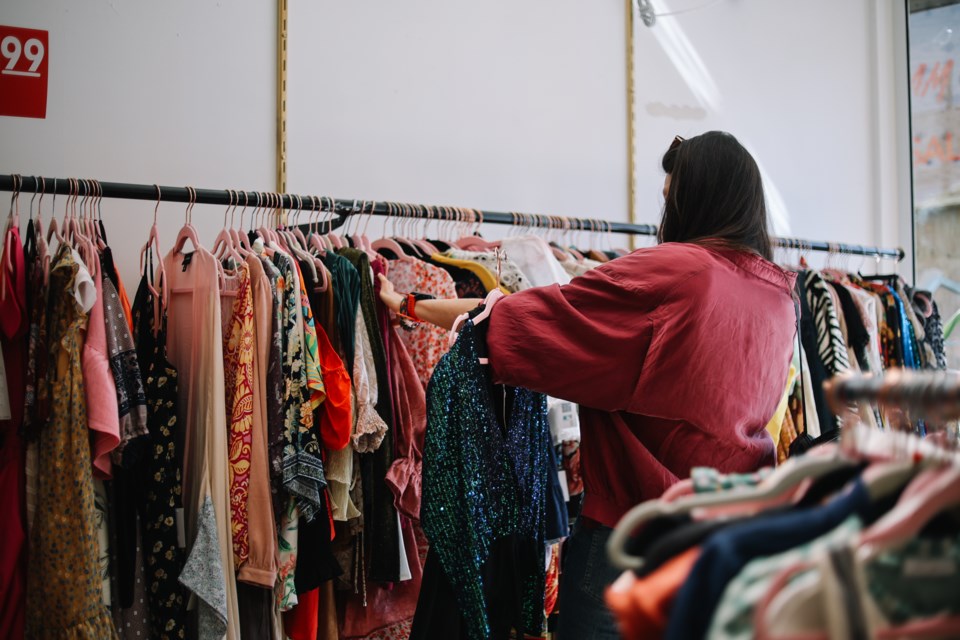It pretty much depends on who you ask, or which headline you read… Some say it’s been a real crunch in the ol’ pocketbook getting into back-to-school mode. Other pals I know with school-aged kids didn’t notice any difference in their spending this year.
And I’m not talking about groceries and gas. Sure, those are up from this time last year. Plus different regions are feeling the pinch as differently as my own anecdotal tales. Like, according to CBC News, while a national survey by Leger shows costs across the country were up hundreds of dollars per student this year, B.C. parents spent less than the national average in five of the six categories surveyed. The exception was “extracurriculars” like hockey and school daycare.
Another survey, one by the Retail Council of Canada, showed that about half those surveyed weren’t going to spend any more at all. Bottom line: there’s nothing like good ol’ neutral data to put the lie (or not) to what you glean from chit-chat and headlines.
Last year before September hit, Statistics Canada did a bang-up job reporting on the changes in back-to-school costs. Interesting—like all the variable stories this year, 2023 saw some items were up (like school supplies and lessons), while some were markedly down, (like computers and cellphone service costs). Clothing costs—surprise, surprise—actually ran below the rate of inflation. Huh.
I know, I know. Call me a nerd, but that’s such interesting, nuanced information. Plus it neatly illustrates how it’s worth digging beneath the quick, shallow sound bites and social media posts when you want to get a handle on things. Too bad there’s nothing posted on Stats Can to get a handle on such costs this year, but you can still find cool Canadian info on geography, farming and more.
So costs up? Costs down? Costs almost the same for you this school year? Any which way you spell it, it’s always a great idea to save those precious dollars wherever and whenever you can.
PRACTICAL SERVICES, PRACTICAL SHOPS
Along those lines, the Whistler Community Services Society offers all kinds of free, solid support (you talk, they listen) along with amazing practical services beyond their well-used and well-regarded food bank. As for any of your back-to-normal, back-to-school needs, check out the amazing items from clothing to maybe a gently used desk or backpack at their Re-Use-It and Re-Build-It stores.
It might be a challenge to find things like pens or notebooks second-hand, although I did once buy an unopened packet of paper pads for next to nothing at Urban Source on Main Street in Vancouver—a brilliant place for inexpensive creative supplies anytime.
All the while keep in mind that some people, like one of my oldest and dearest friends who successfully raised three gorgeous daughters as a single mom on a pretty limited income in the Sea to Sky, elevate the whole thrift store thing to an art, finding brilliant “treasures” at such reasonable prices it’s unbelievable.
I also love WCSS’s current Secondhand September Challenge—an initiative started by Oxfam in the U.K. It’s a perfect antidote to “fast” fashion and over-consumption: “Can you buy nothing new for the entire month of September?” And I add, can you push that forward into October? November?
Wow! A concept after my own heart. And it’s actually fun. I haven’t bought anything new for my closet since late spring, and those were shoes that literally wore out. Other than that, I don’t think I’ve bought anything new for ages, other than lightbulbs, garden plants, books (and more books! most of them second-hand) along with the odd gift or three.
All this reminds me of another dear pal, also from Whistler way back when, who sighed deeply one day when she had to go buy something or other new, some “girly” clothing for a posh downtown event. “I hate shopping!” she yelled to the universe, describing all the (wasted) time and energy and aggravation it takes to “go shopping.”
Shopping is exhausting! For we humans and for the natural world. Remember, all that “stuff” comes from somewhere. And a surprising amount of it is plastic, which largely comes from fossil fuels and/or plant-based cellulose—read, “trees.” In fact, Environmental Defence claims the manufacture of plastic goods and the like is actually Plan B for the fossil fuel industry as demand for fossil-fuelled transportation declines.
The Secondhand September Challenge offers other excellent tips on the many ways to go for nothing new. Borrow it. From your favourite neighbourhood library. Besides good books, the Whistler Public Library, for instance, offers telescopes, microscopes, board games, Kobos for eBooks, outdoor blankets, seeds, ukuleles, sewing machines, knitting machines, bike repair kits and more! Borrow something from a neighbour. Lend something back. It’s a great way to build community.
Re-purpose or repair it. It taps your creative, inventive self, and sometimes it can even put you on a whole new life path. I know more than one person who got into woodworking or fixing motorcycles for a living after they did it for themselves.
Is life costing us more? Or less? And where are those costs really embedded? A lot of these things are up to us and come down to simple decisions or strategies, if you will, that can help us get off the treadmill and find our own paths, all while chalking up savings in more ways than one.
Too much stuff? Time to donate!
The Whistler Community Services Society proudly operates two popular social enterprise stores that welcome your support and your donations—their Re-Use-It Centre at 8000 Nesters Road and their Re-Build-It Centre at 1003 Lynham Road. Another good reason to shop there: In 2023 alone, those two stores saved 426,563 kilograms of waste from the Whistler landfill!
Glenda Bartosh is an award-winning journalist who’s always appreciated a good second hand.




